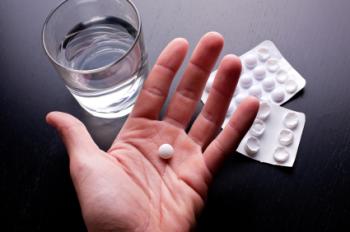
1 in 10 Americans are inappropriately prescribed daily aspirin to prevent a first heart attack or stroke.
This was the conclusion of a new study published in the Journal of the American College of Cardiology, led by a team at Baylor College of Medicine in Houston, TX.
The researchers note that as aspirin is also available over the counter, it is possible that inappropriate use may be higher than their figure suggests because of patients medicating themselves against the risk of primary cardiovascular events.
In May 2014, the Food and Drug Administration (FDA) advised Americans against the general use of aspirin for primary prevention and they also recently denied a request to market the drug for such use.
To decide what constitutes inappropriate prescribing of daily aspirin for preventing a first heart attack or stroke, the researchers evaluated guidelines from organizations like the American Heart Association and the US Preventative Services Task Force.
Study analyzed large nationwide patient sample of aspirin use
From the published guidelines, the researchers determined that daily aspirin use would be inappropriate in patients whose 10-year cardiovascular risk was under 6%.
They then used this rule to analyze data on a nationwide sample of 69,000 patients receiving aspirin for primary cardiovascular disease prevention. The sample came from the National Cardiovascular Disease Registry Practice Innovation and Clinical Excellence (PINNACLE) Registry.
The patients in the sample were attending 119 practices when they were prescribed aspirin between January 2008 and June 2013. The researchers excluded patients who had already experienced a cardiovascular event - such as heart attack or stroke - or who were affected by heart conditions like atrial fibrillation.
The analysis showed nearly 12% of patients in the nationwide sample probably should not have been prescribed aspirin to prevent primary cardiovascular disease.
The team found that inappropriate use of prescribed aspirin was higher among women than men (17% versus 5%). Patients prescribed aspirin inappropriately were also on average about 16 years younger than those receiving it appropriately, they note.
However, they also found that inappropriate use fell from 14% in 2008 to 9% in 2013.
In addition, the researchers found the rate of inappropriate prescribing varied among practices, ranging from 0-72% of patients receiving aspirin for primary prevention.
In people who do not meet guidelines, risk of bleeding outweighs potential benefits
There is no evidence, note the authors, that aspirin reduces the risk of a first stroke or heart attack in people who have no history of cardiovascular events and a low risk of developing disease. However, it is linked to raised risk bleeding in the gut or stomach and of hemorrhagic strokes.
The research team at Baylor College of Medicine, says doctors must think about whether the potential for bleeding outweighs the potential benefits of aspirin in patients who do not meet the guidelines, adding:
"Since aspirin is available over the counter, patient and public education against using aspirin without a medical provider's recommendation will also play a key role in avoiding inappropriate use."
In an editorial published with the study, reserachers at the the Heart and Lung Center and and at the University Medical Centre of Nijmegen in the Netherlands - say:
"Major coronary events are reduced 18% by aspirin, but at the cost of an increase of 54% of major extracranial bleeding. Each two major coronary events have shown to be prevented by prophylactic aspirin at the cost of one major extracranial bleed. Yet, primary prevention with aspirin is widely applied."
In August 2014, another team of researchers reported a study that suggested daily aspirin could be an effective way to avoid recurrent blood clots in patients with venous thromboembolism - blood clots in the veins - who are unable to have anticoagulant therapy.
References:
1. Frequency and practice-level variation in inappropriate aspirin use for the primary prevention of cardiovascular disease: insights from the National Cardiovascular Disease Registry's Practice Innovation and Clinical Excellence Registry, Ravi S. Hira, et al.,Journal of the American College of Cardiology, doi:10.1016/j.jacc.2014.10.035, Vol 65, Iss 2, pp 111-224, 20 January 2015, abstract.
2. American College of Cardiology news release, accessed 13 January 2015 via EurekAlert.
No comments:
Post a Comment